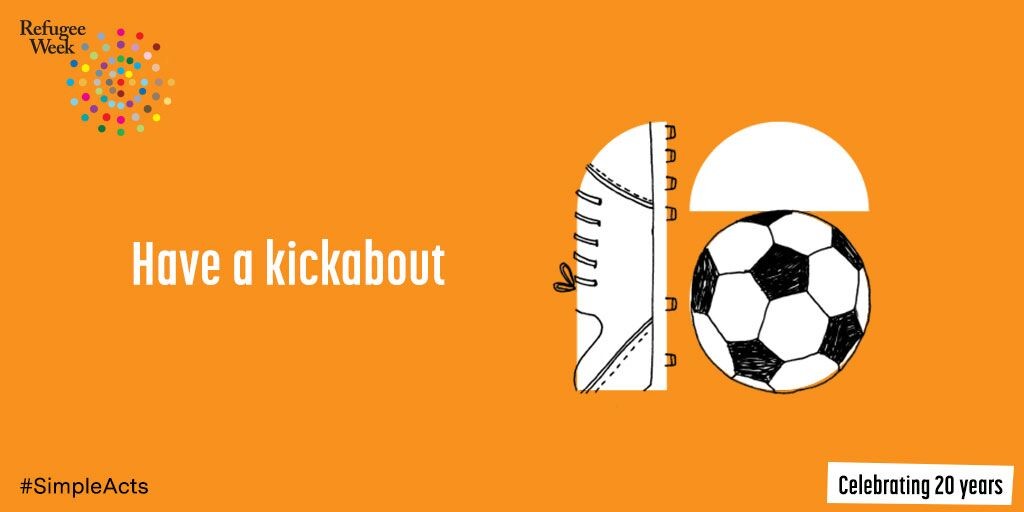
World Cup fever hit you bad? Ever thought about what football would be like without people crossing borders?
Since the Spanish civil war 80 years ago, refugees have been making their mark on the beautiful game. Motherwell’s Gael Bigirimana fled the civil war in Burundi in the 1990s, and Bolton Wanderers’ former midfielder Fabrice Muamba escaped the conflict in the Democratic Republic of Congo. Manchester City’s Nadia Nadim and Liverpool’s Dejan Lovren are also refugees.
But it’s not just about famous footballers. Walk past any local park on a Sunday afternoon and you’ll see the power football has to bring people together.
No-one knows this better than those across the UK who run footie projects with and for locals and their newly-arrived neighbours, for Refugee Week and beyond.
One example is in Plymouth, where the Hope Festival brings thousands together for a special Refugee Week football tournament.
Refugee Week kickabouts can be big or small. Part of an event or just with some mates, family members. You might even choose to watch a game instead of playing one (it is the World Cup after all).
The point is to share the pitch (or sofa) with someone you wouldn’t normally have the chance to meet. To welcome everyone, across genders, ethnicities and backgrounds. To invite someone new.
You can do this in a few simple ways. Take a look at the Our Community section of our website to find other groups in your local area. Maybe there’s a local refugee organisation you can invite. Or, if you’re from a refugee organisation yourself, why not get in touch with a local college, hospital or police team?
You can contact us for more advice and ideas, and don’t forget to log your Simple Act by sharing on social media with the hashtag #SimpleActs, or emailing us.
